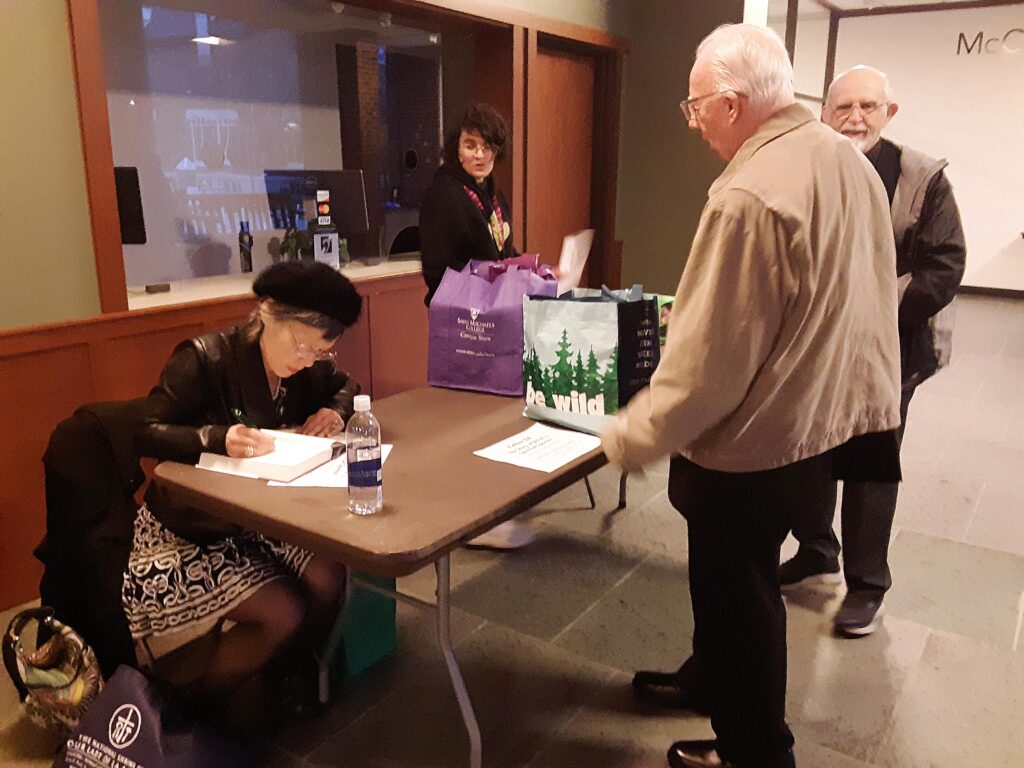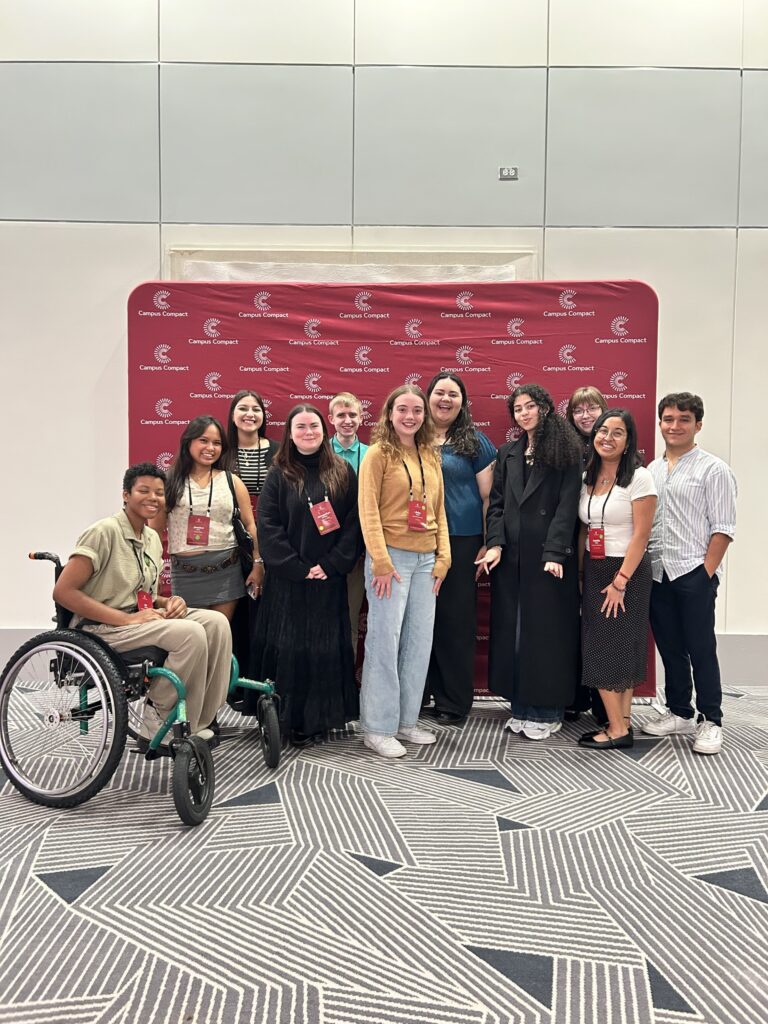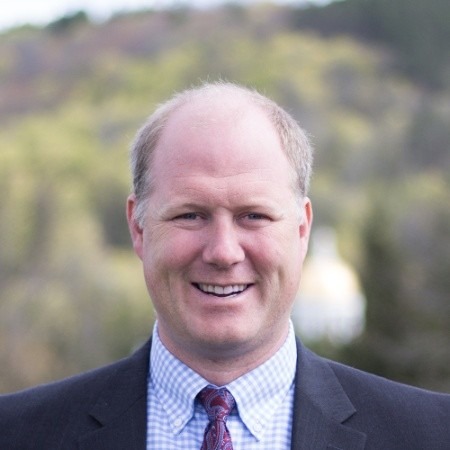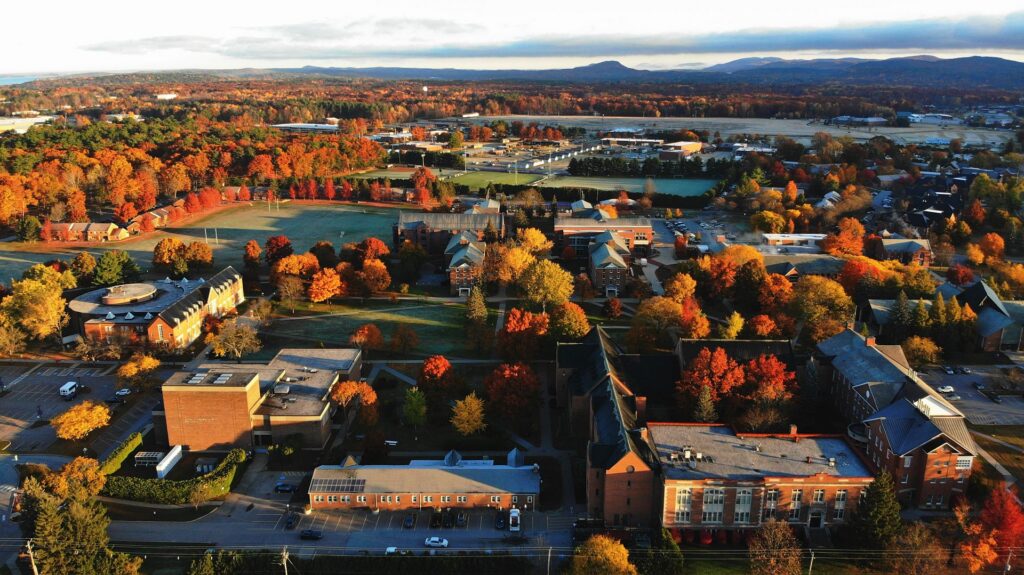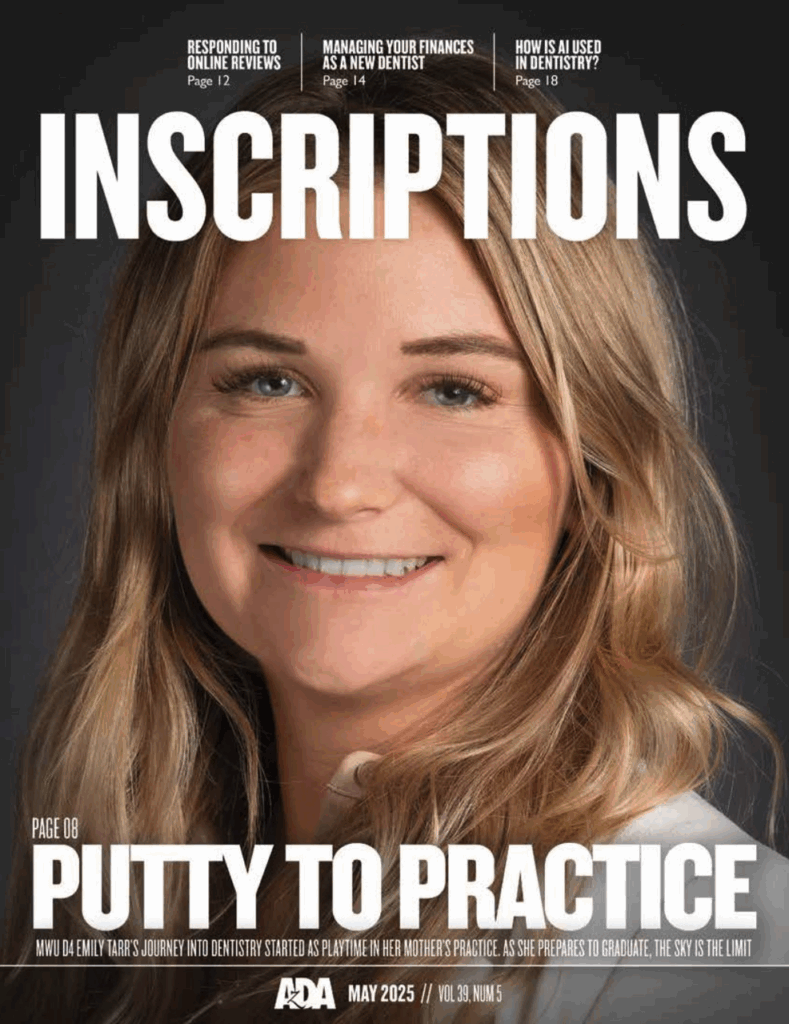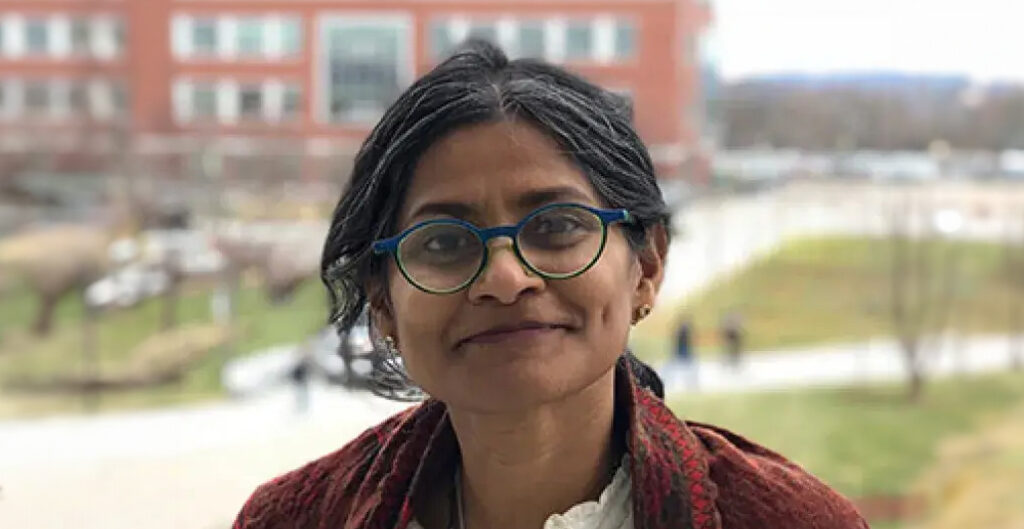For her first talk in the home state of Alcoholics Anonymous’s two Yankee Protestant founders Bill Wilson and Dr. Bob Smith, author Dawn Eden Goldstein stressed the spiritual basics — humility, love and service – behind the good works of both non-denominational AA and one of the fellowship’s best Catholic friends, the late Jesuit priest Fr. Ed Dowling.
Goldstein built her late-afternoon Tuesday talk at Saint Michael’s College in McCarthy Recital Hall on Oct. 17 around her new book Father Ed – a Dowling biography that describes the priest’s keen interest in and profound influence upon AA and his close friendship with Wilson, who grew up in southwestern Vermont. “Dr. Bob” came from the Northeast Kingdom.

Dawn Eden Goldstein. (Photo by Mark Tarnacki)
Goldstein talked for about an hour, primarily on the theme of Fr. Ed’s essential humility, alongside his delight in connecting the spiritual exercises of St. Ignatius, founder of the Jesuits, to AA’s “Twelve Steps,” leading to a lifetime close friendship with Wilson that amounted to being the AA founder’s “spiritual sponsor,” as the late Wilson once put it.
Tuesday’s speaker, a former prominent rock ‘in’ roll writer and copy editor for major newspapers, was received into the Catholic Church in 2006 after being raised in Judaism and then having a born-again Christian experience in 1999.
Fr. David Theroux, director of the campus-based and event-sponsoring Edmundite Center for Faith and Culture, introduced the speaker and shared some of her history: Born in New York City, Goldstein began her working life as a rock-and-roll historian. She went on to editorial positions at the New York Post and the Daily News before publishing her first book in 2006 and several more books subsequently. In 2016, she became the first woman to earn a doctorate in sacred theology from the University of St. Mary of the Lake. In 2023, she received a licentiate in canon law from the Catholic University of America.
Goldstein told her warmly welcoming Saint Michael’s audience of about 50, including several Edmundites and area friends of the AA fellowship, that Bill and Dr. Bob’s Vermont connection made this talk particularly meaningful for her.
The speaker said as a non-alcoholic, she personally identified closely with Fr. Ed’s words that his not being an alcoholic made him “underprivileged,” given the great gifts that he had witnessed through AA.

Goldstein signing books for Edmundite Frs. David Theroux and Fr. Richard Berube, S.S.E. (Photo by Mark Tarnacki)
She said Fr. Ed, who died in 1960, “loved ministering to humble people” – that is, “the least of these” of Matthew’s Gospel, which were words Dowling “took very much to heart.”
Goldstein said that fact motivated her to speak on three points relating to Father Ed, Wilson and humility: “How Fr. Ed as a young Jesuit gained his love of humility; how he brought his life of humility into work of AA and friendship with Bill; and how his encounter with the humility of AA members strengthened him in his ministry.”
“Winging it” without notes, the personable and witty speaker shared engaging and sometimes humorous stories that brought forth Fr. Ed’s humanity and simplicity: a star baseball player nicknamed “Puggy” in his St. Louis youth, his spiritual crisis that amounted to a “dark night of the soul” in novitiate with the Jesuits that helped him relate to alcoholics “hitting bottom,” his physical suffering from a calcified spine. She also told of Dowling’s great interest in journalism and politics, including activism advocating for true democracy, with insights ahead of his time (as were his pre-Vatican-II ecumenical instincts on the spiritual front, she said).
Goldstein said Dowling felt what really saved him in his early spiritual crisis was “the negative path to God.” He said that if he ever found himself in Heaven, “it will be by backing away from hell,” she related.
“That’s how young Puggy found humility and made his surrender,” said Goldstein, who characterized this as a perfectly valid spiritual path, both in AA experience and Catholic theology.
She told the story of Fr. Ed fatefully meeting Wilson in New York City in November 1940, a meeting that by grace led to such profound impacts through AA upon so many lives. Before their meeting, the priest was convinced Wilson must have derived his AA “12 Steps” from the Ignatian spiritual exercises that were such a passion for Dowling, so he asked Wilson about it. Bill responded, “never heard of them!” They laughed together, breaking the ice for what became the closest of bonds from then on.

Photo by Mark Tarnacki
Though Bill had written the AA “steps” based on wisdom from earlier spiritual sobriety movements like the Protestant Oxford Groups and fellow alcoholics’ experiences with spiritual deliverance from suffering, he had not completed all those steps personally before meeting Dowling, Goldstein said, so Bill took his “fifth step,” of admitting the nature of his wrongs to another human being, to Fr. Ed.
While Bill strongly considered converting to Catholicism, stemming in part from his great admiration and affection for Fr. Ed, he decided not to — “concerned that if he did people would think AA was only for Catholics and he wanted it to be for everyone. In his heart, it was evident he felt close to Catholicism though,” the speaker said.
At the conclusion of her talk, Goldstein answered audience questions, telling one questioner that she personally believes Dowling is a saint.
Following questions, Goldstein set up a table in the McCarthy lobby to sign copies of her Father Ed book, using what she said is her standard, simple but powerful repeated inscription for such book-signings: “love and service.”

For all press inquiries contact Elizabeth Murray, Associate Director of Communications at Saint Michael's College.
